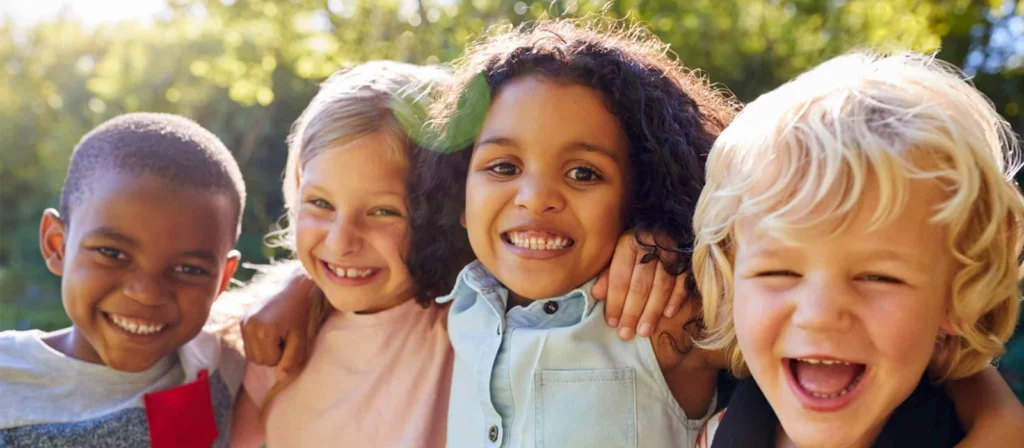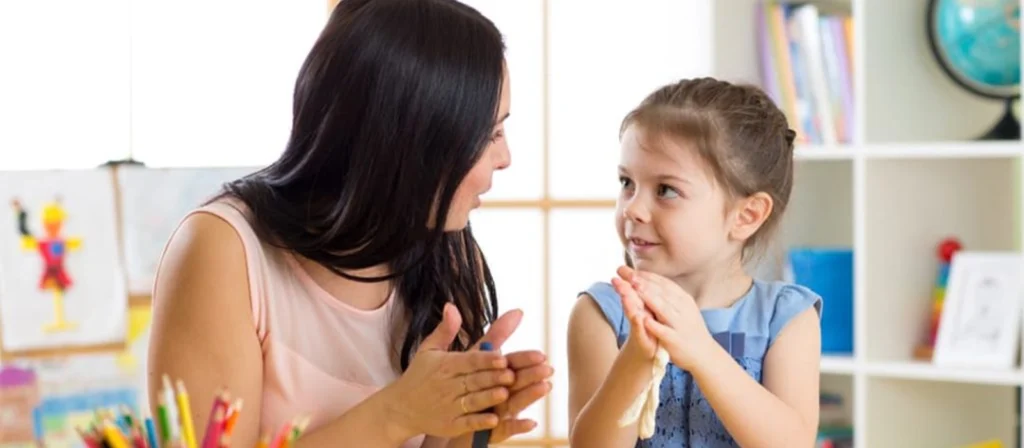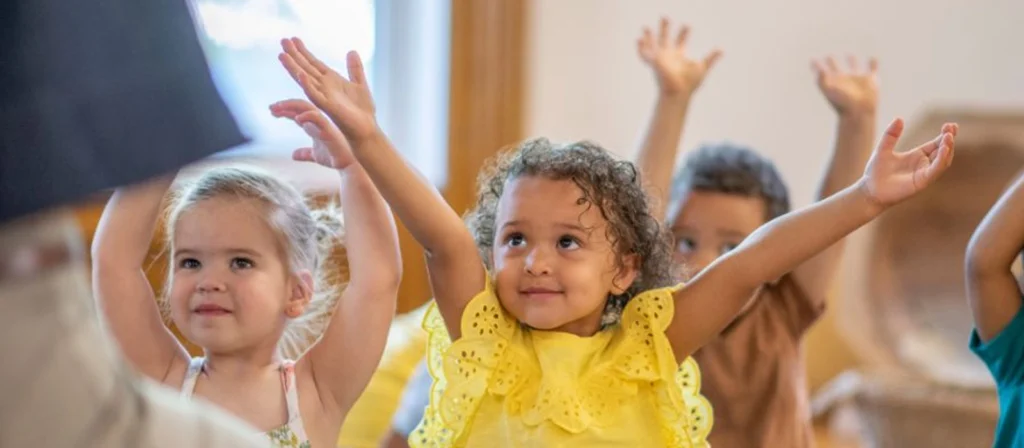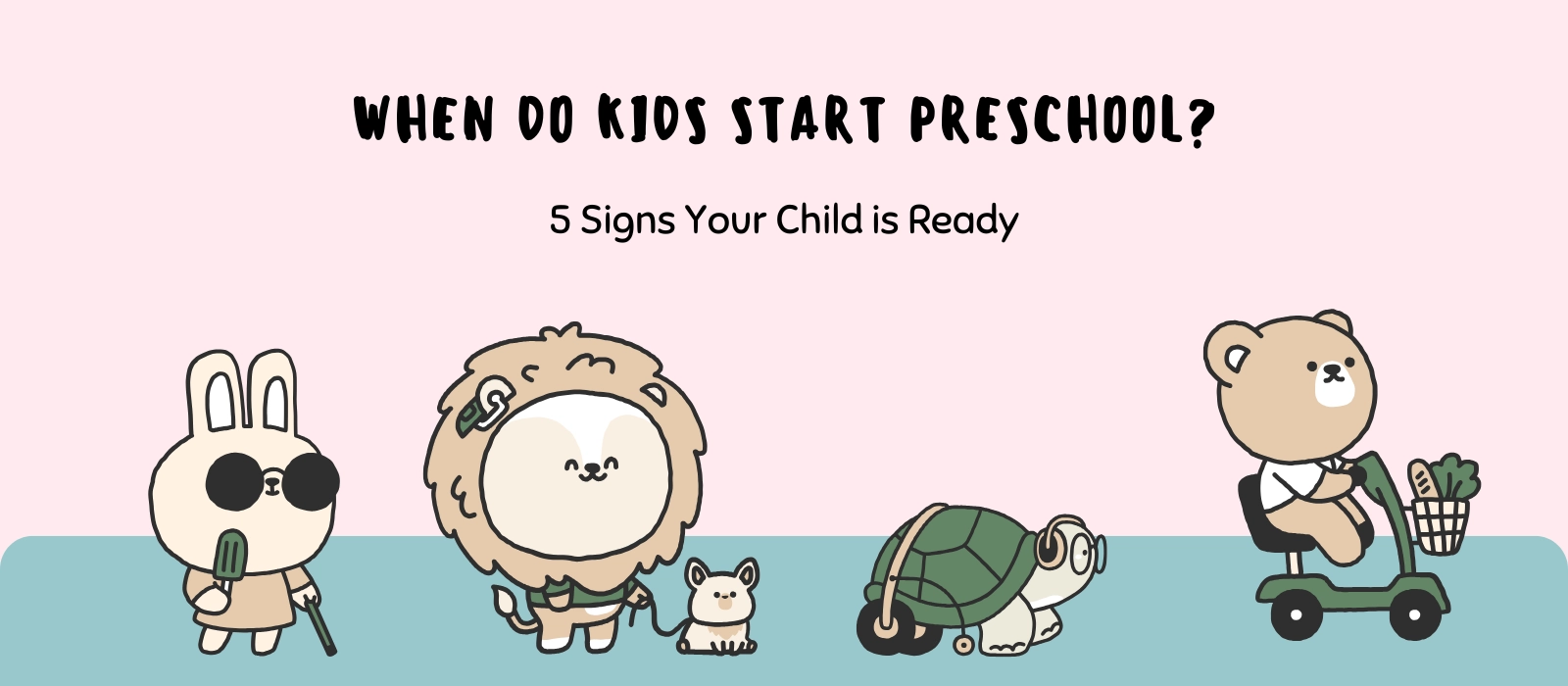When do kids start preschool? This is a question many parents struggle with. Are you wondering if your child is ready to begin their preschool journey, or if they should wait another year? The decision of when to start preschool can feel daunting, and getting it right is crucial. After all, starting preschool too early or too late could have a lasting impact on your child’s development, both socially and academically.
The ideal time for a child to start preschool is typically around the age of three, though it can vary depending on individual development. This age is often considered optimal because children begin to develop essential social, emotional, and cognitive skills that are crucial for a positive preschool experience. However, every child is unique, and some may be ready earlier or later than others. The decision should be based on their emotional readiness, independence, and ability to adapt to new environments, rather than just their age.
In this article, we’ll explore the five key signs that show when do kids start preschool and how to recognize if your child is ready for this important step. These signs will give you the clarity and confidence to know the right time for your child to start preschool. By the end of this article, you’ll understand the developmental cues that indicate when your child is ready for preschool and at what age you should consider enrolling them.
The Ideal Age for Starting Preschool
When do kids start preschool? The ideal age to start preschool is generally between 3 and 5 years old. However, this can vary depending on the child’s individual development. While age is important, it’s more crucial to consider developmental milestones like emotional readiness, social skills, and cognitive abilities. Some children may be ready to start preschool at age 3, while others might benefit from waiting until they are 4 or 5.

Preschool helps set the foundation for both academic learning and social development. At age 3, children engage in play-based learning, which helps develop basic skills like counting, recognizing shapes, and socializing. By age 4 or 5, children are often ready for a more structured environment, where they begin to learn letters, numbers, and basic problem-solving skills.
Each child develops differently, so it’s important to consider your child’s unique needs. The right age for starting preschool is when your child demonstrates social, emotional, and cognitive readiness, regardless of whether they are 3, 4, or 5.
Sign 1: Your Child Enjoys Socializing with Peers
When do kids start preschool? One of the key signs that your child is ready for preschool is their ability and desire to socialize with peers. Preschool is, at its core, a social environment where children learn to interact with others. If your child enjoys being around other kids, has the ability to share toys, and understands basic social rules like waiting for their turn, they are likely ready for this type of environment.

Understanding the social benefits of preschool
Preschool provides children with their first true opportunity to experience social dynamics outside of their family. It encourages teamwork, sharing, cooperation, and respecting others. When do kids start preschool? If your child enjoys group play, they are likely ready for the social interactions preschool offers. In a preschool setting, children practice skills such as conflict resolution, expressing emotions, and understanding the feelings of others. These early experiences are crucial for their emotional regulation and long-term development.
Impact on development
Socializing at preschool impacts both emotional and academic growth. When do kids start preschool? Starting at the right time, when a child is socially ready, provides significant benefits. Socializing with peers helps children build self-regulation and communication skills, which are essential for their future academic success. These early interactions also teach children how to manage emotions, resolve conflicts, and collaborate with others, all of which lay the groundwork for future learning.
Preparing for socialization
To foster social skills before preschool, consider arranging playdates or small group activities. Group games that involve cooperation, like taking turns or working together on a task, help children learn important social behaviors. Additionally, teaching your child to express their emotions and understand others’ feelings can set them up for successful social interactions in preschool. Role-playing simple situations, such as greeting a new friend or sharing toys, can also help your child feel more confident in social settings.
In conclusion, enjoying social interactions with peers is one of the most important signs that your child is ready for preschool. Preschool is an ideal place for children to develop and refine their social skills, laying a foundation for both their emotional growth and academic success. If your child enjoys group play, is open to making friends, and can engage with others, they are likely ready to take the next step in their educational journey.
Sign 2: Your Child Can Follow Simple Instructions
When do kids start preschool? A key indicator that your child is ready for preschool is their ability to follow simple instructions. Preschool environments require children to listen to their teachers, follow directions, and participate in various group activities. If your child can understand and follow basic commands, this suggests they are ready for the structured environment that preschool offers, where guidance and direction are essential parts of the learning process.

The importance of following instructions in preschool
Following directions is one of the most important skills preschoolers develop. Teachers in preschool environments often provide instructions that require children to listen, process information, and act accordingly. When do kids start preschool? If your child can follow basic instructions like “sit down” or “please pick up the blocks,” they are likely ready for the structured activities that come with preschool. In a typical preschool day, children are expected to follow directions for various activities, from circle time to playtime to cleaning up.
Being able to follow instructions also helps children develop the ability to manage themselves in a group setting. They learn how to be part of the group, how to contribute, and how to respect the rules that guide the classroom. These skills are critical for preschool, where children need to work together in teams and participate in activities that require cooperation and attention.
Impact on development
Being able to follow simple instructions is directly linked to cognitive development. When do kids start preschool? If your child can follow directions at home, they are likely to feel more confident in preschool. Following directions helps children develop essential cognitive skills, such as memory, attention, and problem-solving. These skills are foundational for future learning, as children who can follow instructions will more easily grasp new concepts and navigate more complex tasks.
Emotionally, following instructions teaches children self-regulation. They learn to focus on the task at hand, pay attention to authority figures, and manage their behavior in a group setting. When do kids start preschool? Starting preschool at a time when your child can already follow directions helps them engage with the school environment more successfully. These early experiences in following instructions help them build responsibility and independence, key traits for later academic success.
Academically, children who can follow instructions are more likely to succeed in structured learning environments. The ability to listen, comprehend, and act on directions helps children engage with the preschool curriculum, whether it’s completing an art project or following the steps in a group activity. Being able to follow instructions makes it easier for children to absorb new concepts and complete tasks effectively.
Preparing your child for following instructions
If your child is still learning to follow instructions, there are several ways to support their development before preschool. Start with simple tasks at home, such as asking them to put away their toys, wash their hands, or tidy up their room. When do kids start preschool? If your child can follow basic tasks like these, they will be better prepared for the level of instruction in preschool.
You can also introduce more complex tasks gradually. For example, once your child is comfortable with one-step tasks, try adding a second instruction, such as “Put your shoes away and then wash your hands.” This helps them practice processing multiple directions and following through in an organized way. Additionally, visual cues can be helpful, especially for younger children who might struggle with verbal instructions alone.
Positive reinforcement also works wonders when teaching children to follow instructions. Celebrate when they follow directions successfully, and explain how their actions help the family or their learning. Praise them when they complete tasks correctly, as this encourages them to keep listening and following directions. Simple role-playing exercises can also prepare your child by showing them how to react in preschool-like situations.
In conclusion, the ability to follow instructions is one of the clearest signs that a child is ready for preschool. When do kids start preschool? If your child is able to listen to and act on simple commands, they will have an easier time adjusting to the structured nature of preschool. This foundational skill supports their emotional growth, cognitive development, and ability to succeed academically. By practicing these skills at home, you are setting your child up for success as they begin their preschool journey.
Sign 3: Your Child Shows Independence
When do kids start preschool? A key sign your child is ready for preschool is their ability to be independent. Preschool requires children to manage basic self-care tasks, follow routines, and engage in activities without constant help from parents. If your child is showing signs of independence, they are likely ready for preschool, where structure and responsibility are essential.

Understanding the role of independence in preschool
Independence is crucial for preschool success. When do kids start preschool, and why is independence important? In preschool, children are expected to manage their belongings, follow schedules, and participate in activities with minimal adult intervention. Children who can do tasks like using the bathroom independently, putting on their coat, or organizing their things are often ready for the routines of preschool. These tasks, though small, build a sense of accomplishment and confidence, which are vital for emotional growth.
At home, if your child can follow simple routines—like feeding themselves, brushing their teeth, or choosing clothes—they are ready for the structured environment of preschool. Preschool teachers expect children to function on their own during various activities, which makes independence essential for successful participation.
Impact on development
Independence supports both emotional and cognitive development. When do kids start preschool? Children who are more independent are better at self-regulation and are generally more confident. These skills also help children engage with peers and teachers, which is essential for social development. Preschool provides a supportive environment where children can practice these skills, helping them build a foundation for future academic challenges.
Independence also promotes problem-solving skills. When children complete tasks on their own, they develop critical thinking abilities. For example, a child who decides how to organize their belongings or figures out how to solve a simple problem is practicing essential cognitive skills. When do kids start preschool? If your child can navigate tasks independently, they are more likely to succeed in preschool, where children are encouraged to make decisions and work through problems on their own.
Preparing your child for independence
If your child is still developing independence, there are ways you can support this growth before preschool. Start by allowing them to take on small responsibilities at home. When do kids start preschool? If your child practices basic self-care tasks, like putting on their clothes or feeding themselves, they will be better prepared for preschool. Encourage them to follow routines and praise their efforts to build their confidence.
You can also introduce more complex tasks. For instance, have your child set the table or organize their toys. This helps them develop responsibility. Teaching your child how to solve simple problems, such as finding a lost toy or deciding what to wear, also promotes independence.
In conclusion, independence is a key sign that your child is ready for preschool. When do kids start preschool? If your child can manage self-care tasks, follow routines, and engage independently, they are ready for the structure of preschool. By supporting their independence at home, you ensure they are well-prepared for the next step in their educational journey.
Sign 4: Your Child is Curious and Interested in Learning
When do kids start preschool? A strong indicator that your child is ready for preschool is their curiosity and interest in learning. Preschool is an environment that fosters exploration, discovery, and the development of academic skills. If your child shows excitement about learning new things, asking questions, and engaging with educational materials, they are likely ready to begin their preschool journey. A natural curiosity and eagerness to explore are key signs that a child will thrive in a preschool setting.

The role of curiosity in preschool readiness
Curiosity is a driving force behind learning. When do kids start preschool? If your child is constantly asking questions, exploring new concepts, or showing interest in different subjects, they are demonstrating the kind of curiosity that will help them succeed in preschool. Preschool environments are designed to encourage children to ask questions, explore, and experiment. Whether it’s through hands-on activities, storybooks, or group discussions, a child’s natural curiosity will be nurtured in a preschool setting.
Curiosity also supports the development of critical thinking skills. Children who are curious about the world around them are more likely to engage with new information, try out new things, and solve problems independently. When do kids start preschool? If your child already enjoys exploring new topics and asks insightful questions, it’s a clear sign that they are ready for the stimulating environment that preschool provides.
Impact on development
Curiosity has a profound impact on both cognitive and emotional development. When do kids start preschool? Children who are naturally curious are more likely to develop a love for learning, which will carry over into their academic years. They are more likely to engage with classroom activities, explore new ideas, and retain what they learn. Curiosity also supports the development of problem-solving skills, as children who ask questions and seek answers are developing the ability to think critically and work through challenges.
Emotionally, children who are curious are more confident in their ability to explore the world around them. When do kids start preschool? Children who have a healthy level of curiosity tend to be more adaptable to new environments, as they are eager to learn and experience new things. This helps them transition more smoothly into preschool, as they are already comfortable with the idea of discovery and learning in a group setting.
Preparing your child for curiosity-driven learning
If your child is not yet displaying a high level of curiosity, there are several ways you can encourage them to develop an interest in learning before preschool. When do kids start preschool? If your child is just beginning to explore the world around them, creating opportunities for learning at home can help them develop the curiosity they need for success in preschool. You can do this by introducing them to books, asking open-ended questions, and providing opportunities for hands-on learning. For example, exploring nature, visiting museums, or experimenting with simple science activities can all spark curiosity and open up new ways of thinking.
It’s also helpful to encourage your child to ask questions and explore topics that interest them. If they show interest in a specific subject, such as dinosaurs or space, find age-appropriate resources that allow them to learn more. Talking about their observations and engaging in meaningful conversations can help your child develop a deeper understanding of the world around them, which will be beneficial when they enter preschool.
Finally, create an environment that values learning and exploration. When do kids start preschool? If your child enters preschool with a love for learning and a natural curiosity, they are more likely to succeed academically and socially. Encouraging your child’s curiosity at home sets the stage for a positive educational experience in preschool.
In conclusion, curiosity and a desire to learn are essential signs that your child is ready for preschool. When do kids start preschool? If your child is interested in exploring new topics, asking questions, and engaging with learning materials, they are likely to thrive in a preschool environment that supports and nurtures these qualities. By encouraging curiosity and providing opportunities for exploration, you are setting your child up for a successful transition to preschool and beyond.
Sign 5: Your Child is Emotionally Ready for Preschool

When do kids start preschool? One of the most important indicators of preschool readiness is emotional maturity. Preschool is not just about learning academic skills—it’s about adjusting to a new environment, following routines, and interacting with peers. Children who are emotionally ready for preschool are better equipped to handle the challenges of separation, new social dynamics, and the demands of a structured day. If your child can manage their emotions and adjust to changes in routine, they are likely ready to thrive in a preschool environment.
The role of emotional readiness in preschool
When do kids start preschool? Emotional readiness is about more than just being able to say goodbye to parents without becoming distressed. It’s about your child’s ability to cope with new experiences, manage frustration, and navigate social interactions. Preschool involves a lot of transitions—moving from one activity to the next, adjusting to a new teacher, and learning to be part of a group. Children who are emotionally ready for preschool are able to handle these transitions with greater ease and are more likely to engage positively in their learning environment.
Emotional readiness also impacts a child’s ability to interact with others. Preschool requires children to work together, share, and take turns. Children who are emotionally mature can handle the ups and downs of peer relationships, express their feelings appropriately, and understand the emotions of others. When do kids start preschool? If your child can recognize their own emotions, express them verbally, and manage small frustrations, they are well on their way to being ready for preschool.
Impact on development
Emotional readiness plays a critical role in both social and academic development. When do kids start preschool? Children who are emotionally ready for preschool are more likely to adapt quickly to the demands of the classroom. They are better able to follow instructions, engage in group activities, and work cooperatively with peers. Emotional readiness helps children feel secure and confident in their ability to handle new situations, which fosters a positive attitude toward learning.
In terms of social development, emotional maturity allows children to form healthy relationships with their peers. They can express their needs and feelings appropriately, engage in cooperative play, and resolve conflicts peacefully. When do kids start preschool? Children who are emotionally prepared for preschool tend to have better social skills and are more confident in making new friends. These skills are essential for success in a classroom setting, where collaboration and communication are key components of the learning process.
Emotionally ready children are also better equipped to focus on their academic tasks. Emotional regulation helps them manage the stress and excitement that come with learning new concepts. When do kids start preschool? If your child is emotionally mature, they are more likely to succeed in the structured, academic environment that preschool provides.
Preparing your child for emotional readiness
If your child is still working on emotional readiness, there are steps you can take to help them develop the necessary skills before preschool. When do kids start preschool? It’s essential to provide opportunities for your child to practice managing their emotions in everyday situations. For example, encourage them to use words to express how they feel, such as saying “I’m upset” instead of acting out. Helping them learn to verbalize emotions will make it easier for them to handle similar feelings in preschool.
Another important step is to create routines and consistency at home. Predictable routines help children understand what to expect throughout the day and build a sense of security. Consistent bedtime routines, meal times, and daily activities help children feel more prepared for the structured environment of preschool. When children know what to expect, they are less likely to feel anxious or overwhelmed when faced with new experiences.
It’s also helpful to gradually introduce your child to situations that require emotional regulation. Playdates with peers, visits to new places, or even short periods of time away from parents can help children adjust to new situations. When do kids start preschool? If your child has had the opportunity to practice coping with small challenges, such as waiting their turn or sharing toys, they will be better equipped to handle the emotional demands of preschool.
In conclusion, emotional readiness is a key sign that your child is prepared for preschool. When do kids start preschool? If your child is able to manage their emotions, cope with frustration, and adjust to new environments, they are ready to thrive in a preschool setting. Emotional maturity allows children to engage more effectively with peers and teachers, which is essential for success in both academic and social settings. By supporting emotional development at home, you can ensure that your child is emotionally prepared for preschool and beyond.
Conclusion
When do kids start preschool? The decision to begin preschool is a significant one, and it’s important for parents to carefully assess their child’s readiness. Whether it’s social, emotional, or cognitive development, every child is unique and will be ready for preschool at different times. By looking for signs such as socialization, independence, curiosity, and emotional maturity, parents can better determine the right time for their child to start this new journey.
Delaying preschool is not a negative decision if your child isn’t quite ready yet. In fact, giving them an extra year to grow and develop can provide the foundation they need for future academic success and emotional well-being. Whether it’s through preschool readiness programs or taking more time at home, providing your child with the appropriate support during these crucial developmental years is key. When do kids start preschool? The answer lies in observing your child’s unique needs and helping them transition at their own pace.
As children approach the preschool years, it’s also essential to think about their environment—how it can support their learning and growth. For instance, having access to the right furniture and learning tools can make a huge difference. Comfortable, safe, and stimulating environments allow children to engage more fully with the curriculum and their peers. When preparing for preschool, everything from the right kind of desk to ergonomic chairs plays a role in fostering an ideal setting for learning. At places like Xiha Furniture, we understand that creating such environments is vital for encouraging creativity, focus, and social interaction. After all, when children feel comfortable in their physical space, it sets the stage for a positive and successful educational experience.
In the end, the goal is to ensure that your child starts preschool when they are truly ready, not just because of their age, but because they have the emotional and social skills to thrive in that setting. Whether they are beginning preschool this year or a little later, taking the time to ensure they are prepared will benefit them greatly in the long run.



